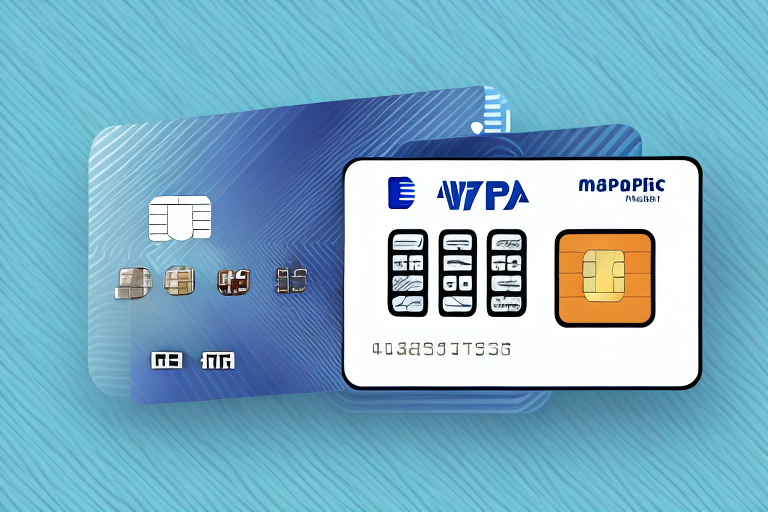Understanding the Basics of Payment Processing
As a business owner, you know that processing payments is an essential part of your operations. Without an effective payment processing system, your business simply cannot thrive. In this article, we’ll explore the fundamentals of payment processing, including the different types of payment methods, the role of payment gateways, security considerations, tips for streamlining your payment system, and more. Let’s dive in!
Introduction to Payment Processing
Payment processing involves the steps businesses take to collect payments from customers. This process typically includes authorizing a payment, collecting funds from a customer’s bank account, and transferring those funds to the merchant’s account. Effective payment processing requires a variety of tools and systems, making it a critical component for business success.
Key Components of Payment Processing
- Authorization: Verifying the availability of funds.
- Authentication: Confirming the identity of the payer.
- Settlement: Transferring funds to the merchant’s account.
- Funding: Depositing the funds into the merchant's bank account.
Importance of Security in Payment Processing
With the rise of online transactions, securing sensitive customer information is paramount. Businesses must implement measures such as encryption technology, fraud detection systems, and compliance with industry standards like the PCI DSS to protect transaction data.
The Importance of Payment Processing for Businesses
Effective payment processing is crucial for collecting payments, generating revenue, and maintaining customer satisfaction. A seamless payment system enhances the customer experience, fostering loyalty and repeat business.
Revenue Collection and Business Growth
Without a reliable payment processing system, businesses risk losing out on sales and revenue. According to Statista, global e-commerce sales reached over $4.9 trillion in 2021, underscoring the importance of robust payment systems.
Fraud Prevention and Risk Management
Implementing secure payment methods and fraud detection tools helps reduce the risk of fraudulent activities and chargebacks. This not only protects the business but also builds trust with customers.
Streamlined Accounting and Financial Reporting
Automated payment processing systems simplify tracking and reconciling payments, minimizing errors and saving time on manual accounting processes. This allows businesses to focus on growth and customer service.
Different Types of Payment Processing
Businesses have access to various payment processing methods, each with its own advantages and considerations:
- Credit and Debit Card Payments: Widely used and convenient but come with processing fees.
- ACH Payments: Ideal for large transactions with lower fees, though slower processing times.
- Mobile Payments: Increasingly popular due to smartphone usage, offering convenience and security.
- E-checks: Digital versions of paper checks, suitable for online transactions.
- Cryptocurrency Payments: Emerging method offering decentralized transactions, though with volatility concerns.
Choosing the right mix of payment methods can enhance customer satisfaction and optimize transaction efficiency.
How Credit Card Payments Work
Credit card payments are a common form of payment processing. The process involves several steps:
- Transaction Initiation: The customer provides payment details.
- Authorization: The merchant’s payment processor sends the details to the credit card issuer for approval.
- Authentication: The issuer verifies funds and approves the transaction.
- Settlement: Funds are transferred from the issuer to the merchant’s account.
While credit card payments are convenient, they involve fees for merchants and may include interest charges for customers.
The Role of Payment Gateways in Processing Payments
A payment gateway acts as the intermediary between a merchant and the payment processor, securely transmitting transaction data. It ensures that payment information is encrypted and complies with security standards.
Benefits of Using a Payment Gateway
- Security: Protects sensitive data through encryption and tokenization.
- Multiple Payment Options: Accepts various payment methods, including credit cards, debit cards, and digital wallets.
- Fraud Detection: Incorporates tools to identify and prevent fraudulent transactions.
Popular payment gateways include PayPal, Stripe, and Authorize.Net.
Choosing the Right Payment Processor for Your Business
Selecting the appropriate payment processor is essential for meeting your business needs. Consider the following factors:
- Pricing: Compare transaction fees, setup costs, and monthly fees.
- Security: Ensure the processor complies with security standards and offers fraud protection.
- Customer Service: Opt for providers with reliable support and resources.
- Integration: Choose a processor that integrates seamlessly with your existing systems, such as accounting software and e-commerce platforms.
- Additional Features: Look for advanced options like recurring billing, multi-currency support, and detailed reporting.
Researching and comparing different payment processors can help you find the best fit for your business operations.
Security Considerations in Payment Processing
Protecting customer data is paramount in payment processing. Implement comprehensive security measures to safeguard transactions:
Data Encryption and Tokenization
Encrypting payment data ensures that sensitive information remains unreadable during transmission. Tokenization replaces sensitive data with unique identifiers, reducing the risk of data breaches.
Compliance with Standards
Adhere to industry standards such as the PCI DSS to maintain secure payment processing environments.
Fraud Detection and Prevention
Utilize advanced fraud detection tools and machine learning algorithms to identify and prevent suspicious activities in real-time.
Tips for Streamlining Your Payment Processing System
An efficient payment processing system saves time, reduces errors, and enhances customer satisfaction. Here are some strategies to streamline your payment processes:
Automate Payment Processes
Implement automated billing and invoicing systems to minimize manual intervention and reduce errors.
Integrate with Accounting Software
Seamlessly connect your payment system with accounting tools to ensure accurate financial tracking and reporting.
Adopt Cloud-Based Solutions
Cloud-based payment systems offer flexibility, scalability, and easier access to transaction data from anywhere.
Offer Multiple Payment Options
Providing various payment methods, such as credit cards, mobile payments, and digital wallets, caters to different customer preferences and speeds up the checkout process.
Common Challenges in Payment Processing and How to Overcome Them
Payment processing can present several challenges. Addressing these effectively ensures smooth business operations:
Chargebacks and Fraud
Implement robust fraud detection systems and maintain detailed transaction records to defend against chargebacks and fraudulent claims.
Transaction Errors
Ensure data accuracy during transaction processing and conduct regular system audits to identify and rectify errors promptly.
Payment Delays
Choose reliable payment gateways and processors to minimize transaction delays. Communicate clearly with customers about expected payment timelines.
Emerging Trends in Payment Processing Technologies
The payment processing landscape is continually evolving with new technologies and trends shaping the future of transactions:
Artificial Intelligence and Machine Learning
AI and machine learning enhance fraud detection, personalize customer experiences, and optimize transaction processing efficiency.
Biometric Authentication
Biometric technologies, such as fingerprint and facial recognition, offer secure and convenient authentication methods for transactions.
Blockchain Technology
Blockchain provides a decentralized and transparent ledger system, increasing security and reducing transaction costs.
Contactless Payments
The adoption of NFC (Near Field Communication) enables faster and more secure contactless payments, especially in retail environments.
The Future of Digital Payments
The digital payments ecosystem is poised for significant growth and transformation. Key future developments include:
Increased Adoption of Mobile Wallets
Mobile wallets like Apple Pay and Google Wallet are becoming mainstream, offering convenience and enhanced security for users.
Expansion of Cryptocurrency Payments
As cryptocurrencies gain acceptance, more businesses are enabling crypto transactions, catering to a broader customer base.
Enhanced Security Measures
Advancements in encryption and biometric technologies will further secure digital transactions, fostering greater consumer trust.
Integration with IoT Devices
The Internet of Things (IoT) will facilitate seamless payments through connected devices, streamlining the checkout process.
Best Practices for Managing Payment Disputes
Effectively managing payment disputes is crucial for maintaining customer trust and financial integrity. Here are best practices to handle disputes:
Maintain Comprehensive Records
Keep detailed records of all transactions, including receipts, communication, and transaction logs, to support your case during disputes.
Promptly Address Customer Inquiries
Respond quickly to customer concerns and provide clear explanations to resolve disputes amicably.
Utilize Dispute Resolution Services
Choose payment processors that offer robust dispute resolution mechanisms to handle and resolve conflicts efficiently.
Conclusion
Effective payment processing is a cornerstone of a successful business operation. By understanding the fundamentals, addressing common challenges, and staying abreast of emerging technologies, you can optimize your payment system for efficiency and security. Implement these strategies to enhance customer satisfaction, reduce risks, and drive your business towards sustained growth.




















